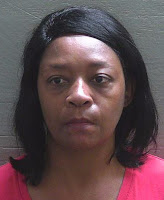AUSTIN, Texas - Caleb Thompson turned 18 while he was in a hospital room. What his birthday picture doesn't show is how becoming an adult also changed things for his parents, D'anne and David Thompson.
"In a 2-day process from a time he leaves the hospital, we are no longer presumed to, we are not legally capable to make his decisions, and we are presumed not to be fit to make his decisions," said David Thompson.
At that moment the Thompsons lost the ability to do what they had been doing for nearly two decades. They could only get it back by going to court. "We were assumed unfit as parents until this court decided all of a sudden we were fit," said D'anne Thompson.
Caleb was born with a neurological condition that causes seizures. It also limited his physical and mental development.
"I had a harder time accepting it than D'anne did, I wanted to think it was he that needed fixing when in fact it was I who needed fixing," said David.
Over the past 20 years, the Thompsons have had setbacks and small victories. One big moment happened when Caleb was able to walk for the first time in 2 years.
"This was 2007, he was the only patient at Texas Children's Hospital, in their memory with that syndrome, that had ever regained the ability to walk under his own power," said David.
Caleb is now about to turn 21 and the Thompsons are able to continue to care for him after obtaining guardianship. But getting that status was a difficult and expensive judicial process."So we started this process when he was 17, and it took almost a year, it took $5,300, it took a lot of time I don’t know how many hours me meeting with people, going to court, just so we could keep doing what we were doing, that just seems crazy to me," said D’anne.
The fight has now moved to the state capitol to cut the red tape. "And it was an outrage to me, as a mother. Mad mama, that’s what I told Steve Allison," said D’anne.
Allison is the San Antonio lawmaker who is helping the Thompsons take on the system. "You know what, every once and a while we can find something where we can apply some common sense and really do some good for a family and protect a relationship and this is it," said Rep. Allison (R-San Antonio).
HB 1675 streamlines the process for parents who want to retain guardianship after their children become adults. A key part is an exemption from a full-court hearing. The bypass is only for parents with no complaints of abuse, neglect, or criminal history.
"It requires a letter from a treating physician or a psychologist, certified by HHS so there's plenty of protection built-in," said Allison.
HB 1675 is pending in the House Judiciary and Civil Jurisprudence Committee.
"We know how the legislative process works, people may have suggestions to make it better, but we think for a bill that is introduced we think it makes a lot of sense, and I think hopefully we can convince people that it makes sense," said David Thompson.
HB 1675 is slated for a committee vote next week that will determine if it will move on to the House floor for debate.








 Published in the Union Leader (3/14/2021)
Published in the Union Leader (3/14/2021)















